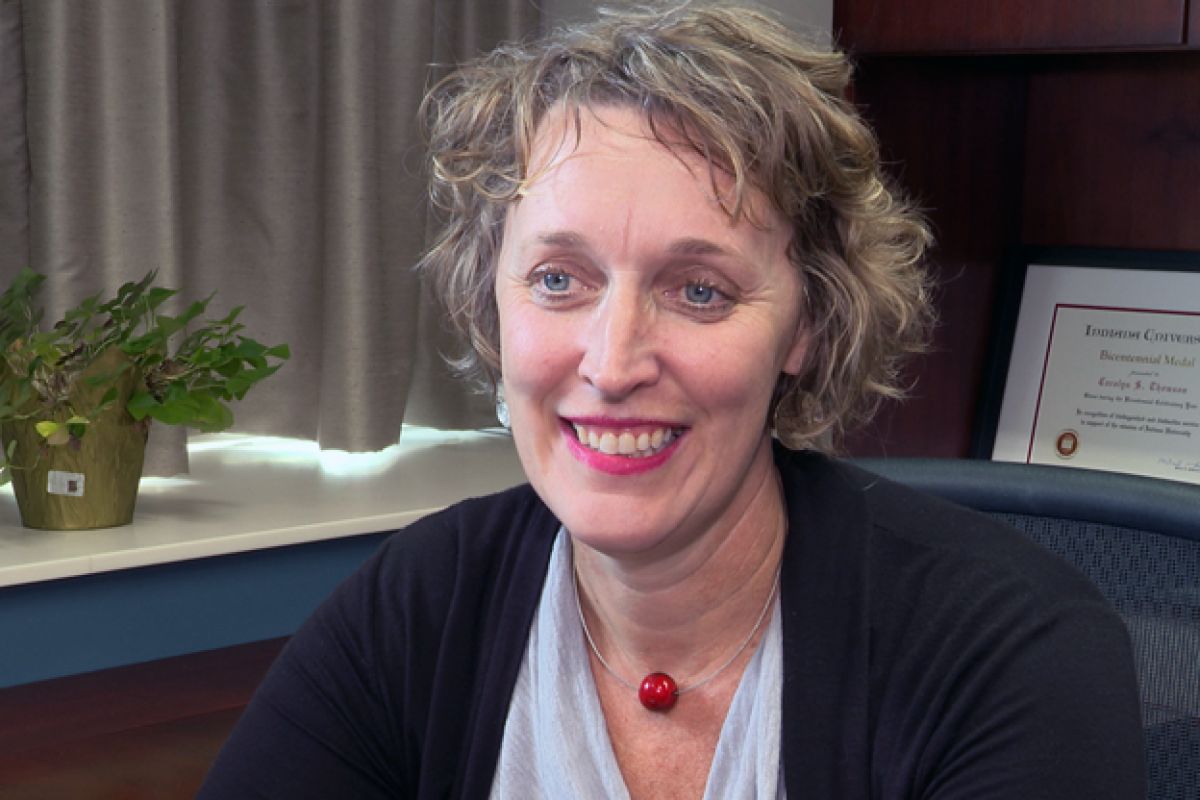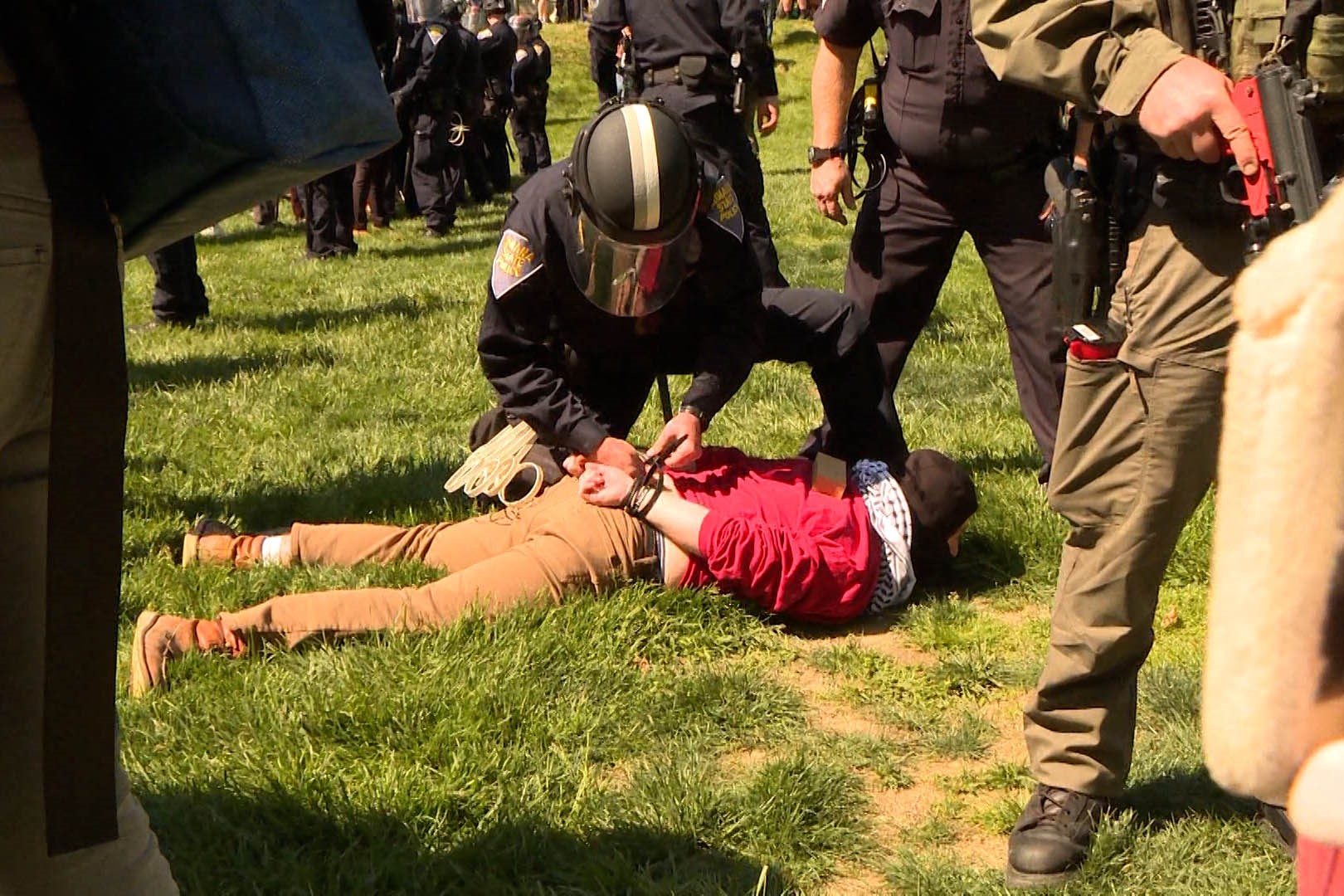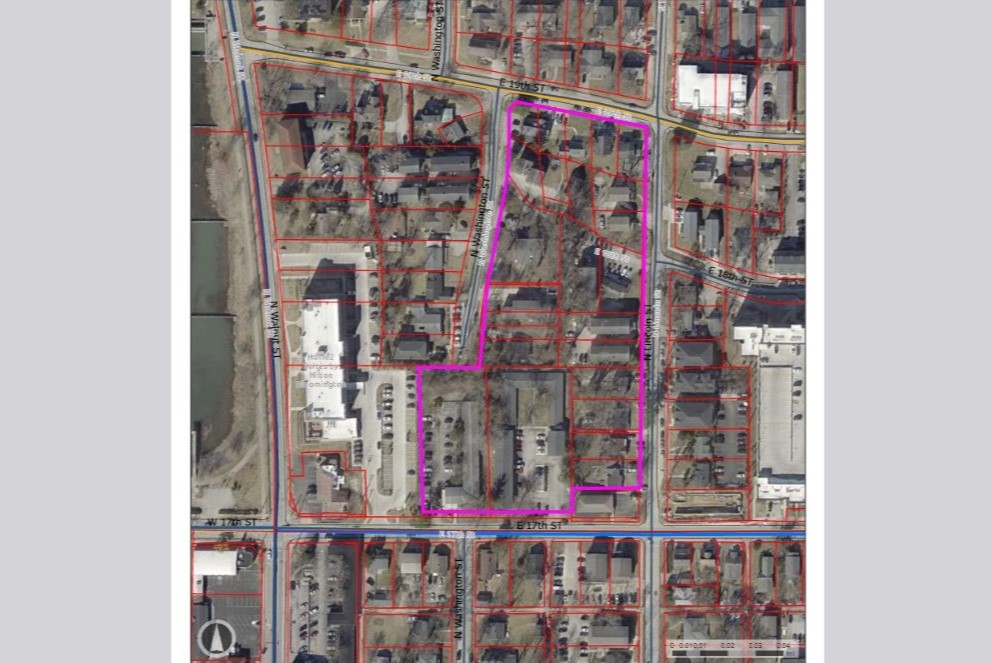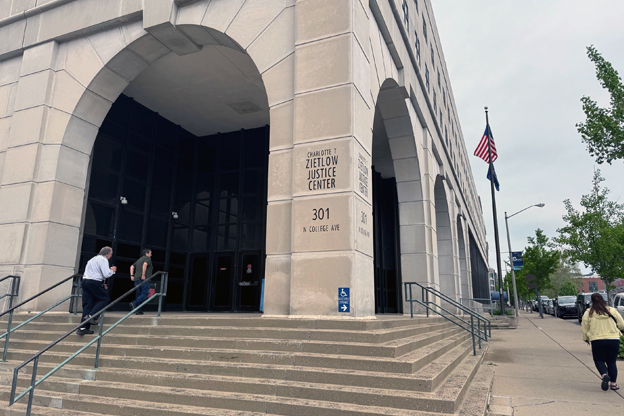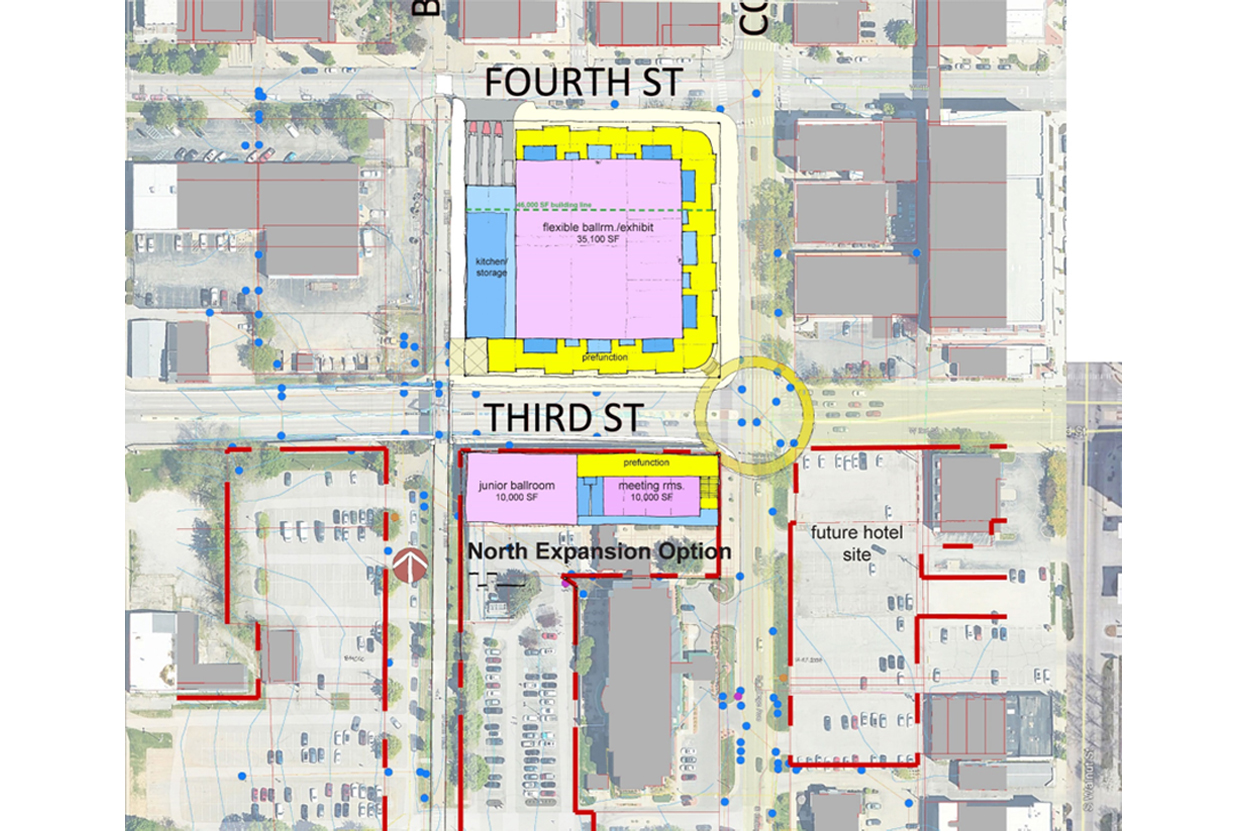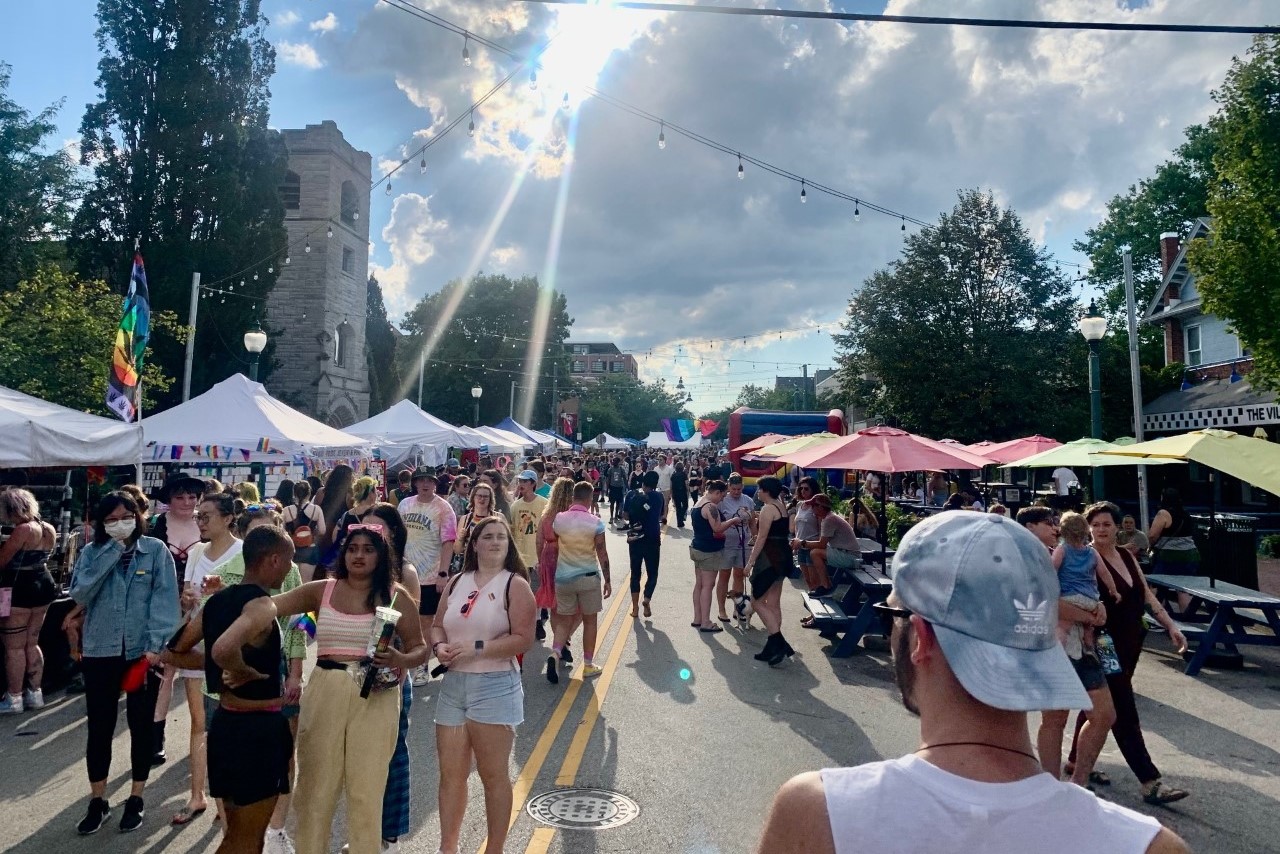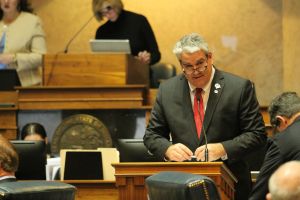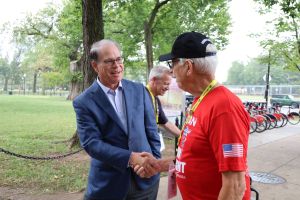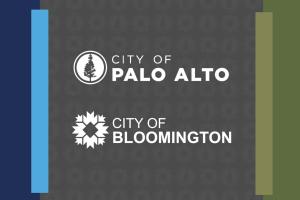Hello and welcome to ask the mayor on WFIU. I'm Joe Hren this week we're with Bloomington Mayor Kerry Thomson. Hello. Welcome back to the show. Good to see you. Thanks, Joe. So it's summer in Bloomington. Just kind of happens overnight here. Graduation comes through and all of a sudden it's summer. That's right. We know that also can mean the start or maybe finishing up a couple of big projects in town. Do you have any updates for us? Yes,
Speaker 2
The one we're getting the most attention for of course is the the waterway underneath Kirkwood. And of course, there's a you know, a significant parking lot. IU parking lot that is closed behind the bicycle garage and a cross done street used to done Street and and so that is the reason that we did not close Kirkwood this summer, of course. And while we hope to keep that pretty well on schedule, there is a culvert that has been deemed historical, that will have to do some some historic renovation to we expect and so that that may be slightly delayed. And then we'll have our typical street closures and, you know, repaving projects, this is the season that we do them. And of course, then there's the MDOT project that is at the Smith road and third East Third Street intersection. Again, that's not a city project that's in dots, but that's causing some traffic headaches for folks who live over there.
Speaker 1
So what does that mean, when there's a culvert that's historical? that's new to me? I've never heard that before. It's new to
Speaker 2
me, too. Yeah. But this cover had a limestone surround to it. And so we're going through some steps to determine what exactly has to be done to to restore that historic facade to the to the cover.
Speaker 1
All right. Let's move on to something that happened right after we met the last time and that was the IU protests. Yes, a lot has gone on here. In that, and I've only had two questions. The first one was, I'm just curious of your take of what happened and how the university responded?
Speaker 2
Well, you know, I'm not on the inside at the university, of course, but, you know, my understanding is that the protesters were planning to set up and done meadow, the university did make some amendments to policy that had been in place since 1969. And, and then, you know, the protesters were not able to stay overnight with the tents. And so the, the university felt like it was the best best practice after asking them to leave to get the state police in and ask the protesters to leave that way. And of course, our community knows there was a significant confrontation and the protesters, about 50 people were arrested. The Bloomington Police did not have any interaction in that in the removal of those protesters. I stand firmly with my belief that that we should be de escalating and allowing people to conduct free speech protests. And that whenever politics possible, we should we should remove protesters without with the least force possible. And, you know, I think it was unfortunate. The the optics of what happened, were unfortunate. It really was. It was traumatic for our community. There's no two ways around that we had police helicopters overhead for three days. There was a rifle with a spotting scope on it on the top of the Union. These are threatening and you know, I understand from the state police's perspective, they felt like they needed to take those safety measures, but certainly, I think that we did not do all in our power to de escalate first. And, and so unfortunately, that escalated things. do really appreciate that, that no further actions have been taken, and the protesters are still there. There. It appears now peacefully protesting and having they're having their voices heard.
Speaker 1
What was the communication? Like from the city's perspective? During that we did, I saw reports with the State Police Superintendent saying that he had a good, good communication with the city and I believe yourself, and, of course, with the university. But there he says there wasn't any really communication between the university and the city, should there have been was there in your opinion?
Speaker 2
We were, we were invited to briefings. We were not part of the decision making. And so we were notified what the university was going to do, that is within their rights. That is, it's their jurisdiction, they're, we, you know, we appreciate being partners at the table, when we can be. And, you know, it's it's my role to lead the city. And, of course, it's the university's administration's role to lead the university, we did not have complete direct communication with the state police about this. In in. In the days following the removal of the protesters, the State Police Superintendent did reach out to me to explain his point of view.
Speaker 1
What is the relationship like between right now the city and the university? What was called that town and gown? Right, between the two? I mean, have you had a chance to talk to President Witten?
Speaker 2
I have? And I would say we have a very positive relationship, you know, between the city and the university, we we are working together on on how we're going to form officially this town gown relationship and how we can partner better together, especially in the future. I, you know, I would say that this, this particular incident didn't go in an ideal way, from a partnership perspective. And I think that, you know, my hope is that we can improve that in the future.
Speaker 1
Of course, this is becomes a much bigger issue with the university and President wit and right now, it's much more than the protests, there's been votes of no confidence all across the campus, I use South Bend. But from your perspective in the city, you're saying your relationship with President win is a good one.
Speaker 2
Yes. And I think that she's providing providing staff resources, to improve communication, and to ensure that whenever possible, we can be on the same page and, and working in partnership. So
Speaker 1
last time, last month, after I left to learn about a new student oriented housing complex that would be over in the stadium neighborhood 17 to 18 streets about 1100 bedrooms. Were What is your stance on these kind of what a lot of people call them big box student complexes duplexes that are coming into the city? I mean, my first thought is a developer is not going to spend millions if he can fill them. But what's your perspective for as the mayor of the city?
Speaker 2
My perspective is that what we really need right now is, is workforce housing, and we need housing at all levels. But we've had a lot of Student Development lately and the, you know, the university is, has been growing their undergraduate enrollment. I don't expect that to continue. And these significantly sized student housing developments that are really targeted to undergrads not to grad students will eventually need to pivot if if they don't fill and my hope is that the buildings themselves and the management are flexible enough to to want to lease to other people when the time comes. But my goal and my priority is ensuring that the develop any development that the city partners on and incentivizes is really targeted at meeting the needs of people who work here.
Speaker 1
Do you have any idea are there statistics about how full these box student duplexes are There's,
Speaker 2
you know, the reports we get is that they're well over 90%. Full. And, and so, you know, the as we build more, I guess we'll see if those numbers change. And, and I am interested in ensuring that we're making the most of the housing that we already have available.
Speaker 1
So I went through that packet for that and saw it was a three point little bit more than $3.4 million required contribution to the affordable housing incentives was part of that developer to get approval for this. That's a lot of money. That's going back to city housing. Right? That's right. And it is that being used for City Homes.
Speaker 2
So we are working on our comprehensive plan right now. And that will include this, this go round, we write one every 10 years. This go round, we will add on a specific housing plan for the city of Bloomington. And I intend to write a strategic plan for how to use that Housing Development Fund. Well, to incentivize the housing that we do want.
Speaker 1
So annexation trial wrapped up just a few weeks ago, I was there every day. And I you were there and testified I don't know how much you now you can you can say that the trial is over waiting for final arguments to be submitted. And then of course, the judge, I'm sure will take some time to have to sift through all that. How to go?
Speaker 2
I think it went well. You know, it's very clear to me that if we don't accomplish some annexation as a city of Bloomington, economically, both the city and county are going to suffer and, and really being able to incorporate into the city limits is is part of what's going to stop our housing. And so, you know, the county's not approving significant housing developments now. And so the, you know, the results of this annexation are, are really critical to the health and the prosperity of of our city and county and ultimately will affect our region.
Speaker 1
You were there first couple of days you were there for for every day should those that the residents that talk those last three days and the mayor was not there? Should they read into that?
Speaker 2
Oh, I don't think they should read into that at all. You know, I I wanted to be there. For the presentation of our case, there was there was some significant testimony, especially from our expert witness, who really is an expert around the country on annexation and, and so it was important for me to be there to support them and, and to, to be present for the presentation of our case.
Speaker 1
You know, just one quick thing. And I remember talking this with previous Mayor John Hamilton that residents worried about the city's going to come in and take my firepit away, they're going to come in and take my chickens away, they're going to come in and you know, and that and I remember you saying a few months ago to that there's a lot of misconceptions there about annexation. And I wonder, like, I felt like I heard that because I don't think the city is going to come in and take a fire pit away.
Speaker 2
Right. And I think it's important to know that, you know, if the annexation happens, I am really eager to listen and, and engage with our new city residents, before they become city residents. And I have been, I have met with several of them and heard their concerns. The city's not going to come in and and you know, make you put a sidewalk in your front yard if you don't want one. And so there's a there's a lot of misperceptions out there, that you're not going to get a $10,000 bill for the sidewalk, we come in and put in either. And so it's important to me that we have some open listening sessions and that I can do my best to meet the needs of any new residents that that become part of the city as a result of this.
Speaker 1
All right Capital Improvement Board moving ahead with the expansion of the convention center. I see you all have a big meeting coming up. What's that about?
Speaker 2
We do this the city council had intended to have a meeting about their desires and design and and forward progress with the convention center. And I suggested that perhaps a collaboration meeting would be great with the city and county together and invite the CIB. Of course to that so that we can all get on the same page. Because I think we can be a little bit like kids at Christmas with our with our wish lists, but Really we're building one convention and civic center and one hotel and getting in the same room and coming to a shared vision should be part of what we are trying to do so that we're not giving something to the CIB that is really too much to handle and instead have a have a collaborative conversation about what's realistic, and and what our shared vision is, with the with the understanding that our ideas probably can improve one another's.
Speaker 1
And we know now that the North parcel for land site use really not available without compensation from the city to the city from the CIB. So I guess my question is, what if the convention center doesn't go there? If a hotel doesn't go there? What happens to that land that the city bought for $7 million? Yeah,
Speaker 2
the administration will work with the redevelopment commission to make a recommendation for that. But my goal, really with all of these parcels of land, is that they've been laying fallow for too long waiting for a new convention center. And our, our development and our redevelopment of this part of our downtown is really critical. And so having land that's just surface parking lots essentially, is it's not the highest and best use of that land. And they really, it really deserves to to thrive, and Bloomington deserves an active part of our downtown there.
Speaker 1
Quick summer question, too, because I noticed I was on Kirkwood Avenue and saw that the hanging lights that were going across Kirkwood have all been taken down. Yes. Is that part of something changing? It's been more permanent coming? Or is that experiment done?
Speaker 2
Well, the hanging lights were, of course, part of the COVID closure of that street and trying to kind of make do some placemaking there. So they just had been up a while and having to get some construction equipment, down Parkwood. And things just doesn't make sense to keep them there. And the streets going to stay open this year, because of the construction we talked about earlier. So that was just time to come down.
Speaker 1
Any plans to put them back up or more permanent lighting like that.
Speaker 2
So there's there are discussions about about how we will will or won't make a longer term seasonal closure of Kirkwood. And so I expect all of this will be part of that conversation. We
Speaker 1
got to go but I wanted to ask about you took a trip. You were one of the mayor selected to participate in a special session of the mayor's Institute on city design in New York City. Right?
Speaker 2
It was it was it. It was fabulous. Every seven mayors were selected. We each brought a case project with us. I brought the Beeline district that goes from the trades district down to Hopewell. And there was a team of 12 resource professionals that all fed into the case study. There'll be sending us their formal feedback in the next couple of weeks, but got really incredible feedback that I think will hopefully impact the convention center. But we'll certainly impact how we're thinking about trades and hope well, and the district in between. We want a really safe trail. And we want a trail that's really alive and vibrant at all hours of day and night. That's really
Speaker 1
interesting to hear. Because I know it's very early, obviously in the convention center expansion, but they had a little mock ups of the different site plans. Right. And I saw a lot of them the Beeline trail up against the new convention center. And they had that was their docking with all the semi trucks and I thought, oh, yeah, what a great opportunity to mix the Beeline with the convention, right, you think that would be a thing right
Speaker 2
there. I mean, the beelines really should be the asset that pulls everybody in. And so there should be some kind of front door to any development we do along the B line from here on that in itself will help keep the trail safer, but it also it's a treasure and so people coming to the community are going to want to use it. And so whether we put the hotel against the Beeline with maybe their outdoor courtyard area or whether maybe the convention center has an outdoor event venue that opens as a plaza onto the Beeline. The designers will have great ideas about it, but really we should be using it as an asset.
Unknown Speaker
Gotta go but I'd like to leave the last 30 seconds to you any announcements, any things that we need to know?
Speaker 2
I think, you know, we have we of course approve the summit district on we could go Wednesday. That is a really exciting new housing development and that's going to provide a lot of the workforce housing that we need. Council did put A request in which, which the developer was happy to comply with that those are going to be 40% owner occupied, that's really significant. So, you know, what that does is really bring some permanent residents into, into that district. Again, connectivity to the trails, and other assets and immediate access to 69 to go down to crane or up to cook or Katelyn. So, just Just what we need.
Speaker 1
Thank you so much. See you in June. Thanks.







